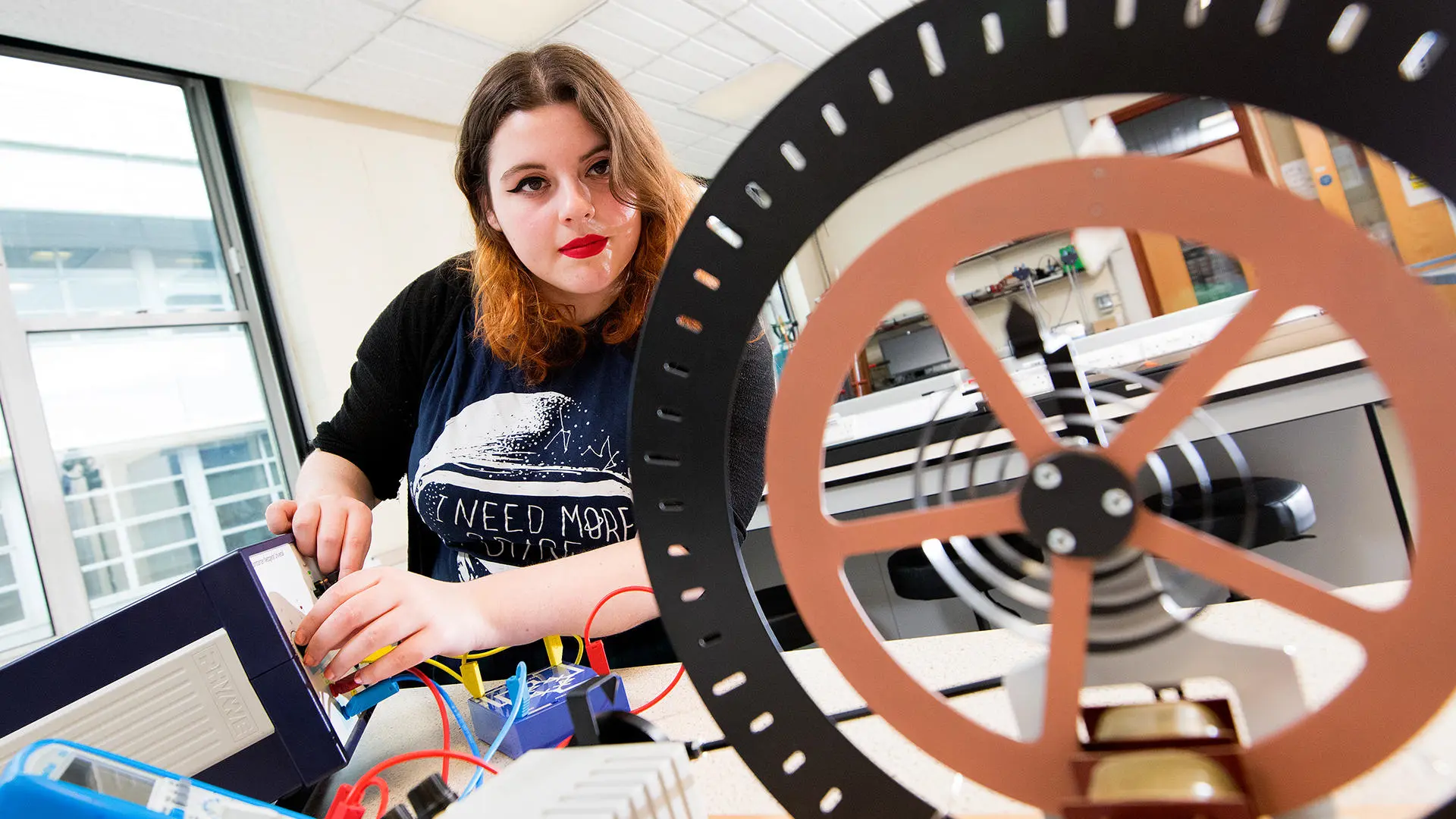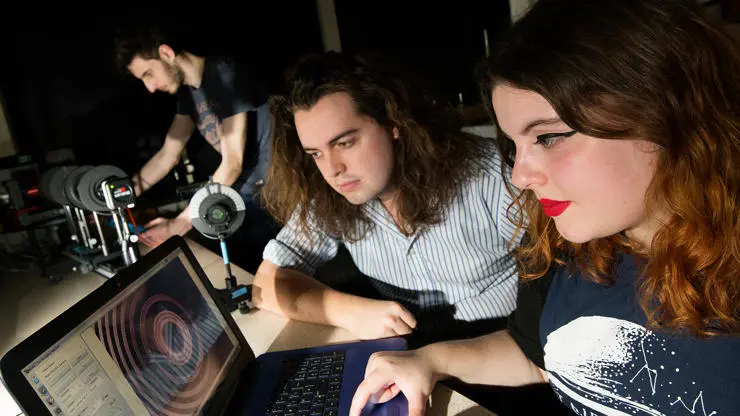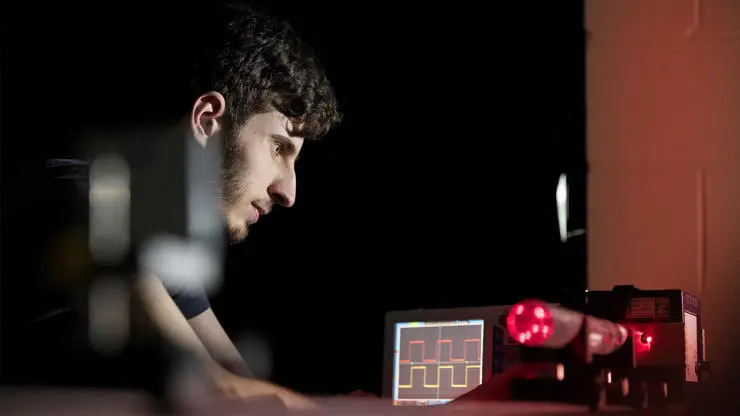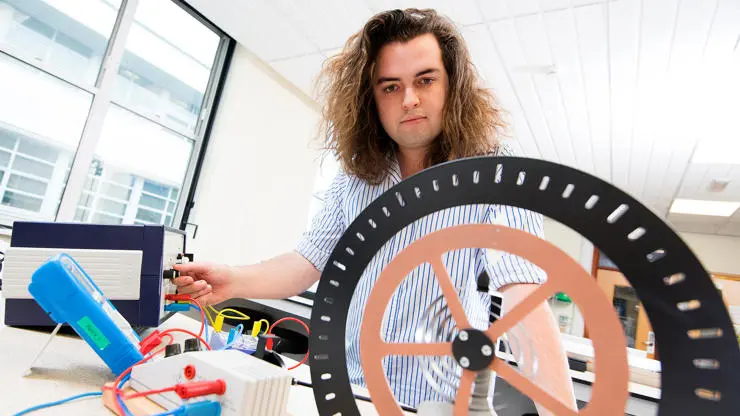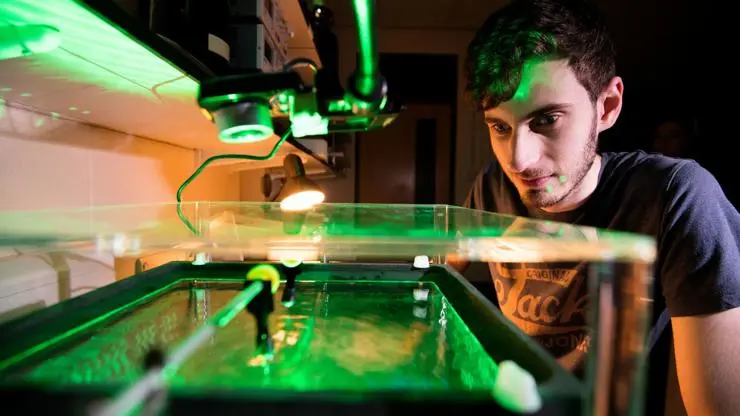The laws of physics govern everything in our universe. From subatomic building blocks of matter to galaxies spanning light-years. Discover it all on our BSc Physics degree.
Why study with us
- 1stin the UK for academic supportNational Student Survey (Physics and Astronomy) (compared with unis in the Guardian University Guide)
2023 - 6thin the UK for overall positivityNational Student Survey (Physics and Astronomy) (compared with unis in the Guardian University Guide)
2023 - 2ndin the North West for student satisfactionComplete University Guide (Physics and Astronomy)
2024 - 5thin the UK for teaching qualityTimes Good University Guide (Physics and astronomy)
2024
- You’ll explore concepts spanning basic theory to discoveries at the forefront of the field, giving you the knowledge, skills and confidence to be a part of future advances and innovations.
- We have recently invested in our teaching laboratories. Providing a cutting-edge learning environment using equipment to develop your skills ready for industry.
- Our courses are delivered through engaging lectures, problem-solving tutorials and hands-on laboratory sessions. And our small class sizes means you'll receive lots of support right from the start.
About our Physics degree
- This course begins with the same modules as our Physics with Astrophysics and Astrophysics courses. This means you can switch courses at the end of your first year.
- In your final year of study, you'll work on an individual project in an area of physics that you choose.
- With a range of optional modules, you can steer your studies toward your interests in areas like nuclear and particle physics.
Modules
In Year 3 you will study either Physics/Astronomy Project or UAS Teaching Placement.
Every effort has been made to ensure the accuracy of our published course information. However, our programmes are subject to ongoing review and development. Changing circumstances may cause alteration to, or the cancellation of, courses. Changes may be necessary to comply with the requirements of accrediting bodies or revisions to subject benchmarks statements. As well as to keep courses updated and contemporary, or as a result of student feedback. We reserve the right to make variations if we consider such action to be necessary or in the best interests of students.
Academic Expertise
Accreditations
What can I do with a Physics degree?
A Physics BSc degree can pave the way for careers in research, technology, finance and more. You'll gain the analytical skills and mathematical knowledge that are in high demand across a range of industries.
Entry requirements
We will consider your educational achievements, predicted grades, work experience and personal statement. If you don't meet the grades for your chosen course, we will consider you for other programmes.
We know that many factors can influence the grades you achieve in school or college. If your life experience has affected your academic studies, we can take this into account. Use the UCAS Points Calculator below to check whether you are eligible.
Unsure if you meet our entry requirements? Contact our friendly Course Enquiries team to talk through your options.
Transfers onto later years of the degree are considered subject to compatibility.
- UCAS: 120 points at A2 including BB in Physics and Maths
- BTEC Extended Diploma: Only considered with Maths and Physics A Level at grade BB
- International Baccalaureate Diploma: 120 points from Higher Level subjects including Higher Level 5 Maths and Physics
- Pass Access course: 120 points including 15 level 3 credits at D in Maths and 15 level 3 credits at D in Physics
- IELTS: grade 6 with no component lower than 5.5
- GCSEs: 5 at grade C/4 including Maths and English or equivalent
Use our UCAS points calculator
Not got the grades?
Our courses with a foundation year could be exactly what you're looking for. They provide an alternative route to study for this degree.
Fees and funding
Scholarships and bursaries
We have a wide range of bursaries, scholarships and funds available to help support you whilst studying with us.
Select your country to see eligibility information and how to apply by selecting more info on the cards below.
Care Leaver Bursary
Our Care Leaver Bursary is for students who need extra support because they have been in care or are estranged from their parents.
Find out more about Care Leaver BursaryEstranged student support
Estranged Student Support Bursary is for students who need extra support because they are estranged from their parents.
Find out more about Estranged student supportDependants Bursary
Students with financially dependent children may be eligible for our Dependants Bursary as part of our financial support package.
Find out more about Dependants BursaryFinancial support package
If you are from a low income household our Financial Bursary may be able to help.
Find out more about Financial support package
This course is delivered by the School of Engineering and Computing
For information on possible changes to course information, see our essential and important course information
You can find regulations and policies relating to student life at the University of Central Lancashire on our student contract page

